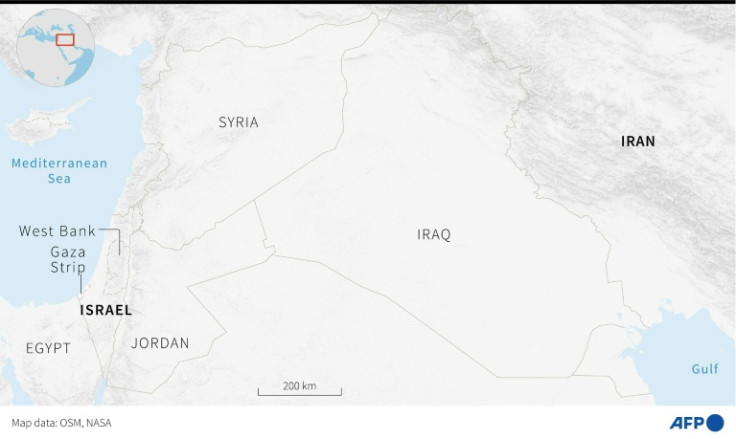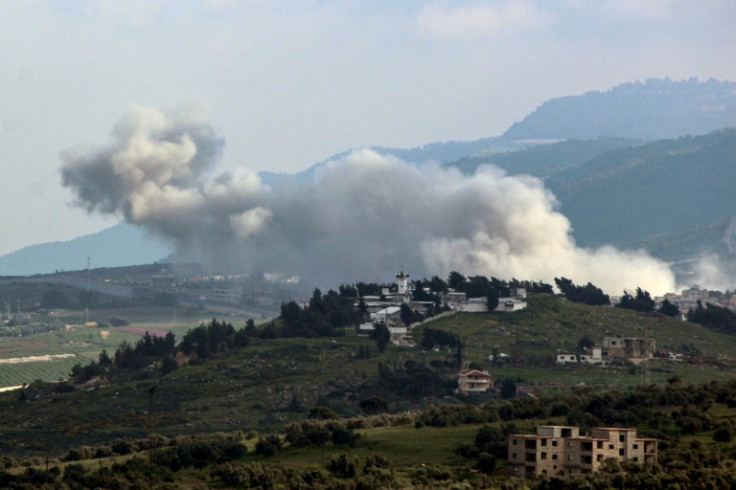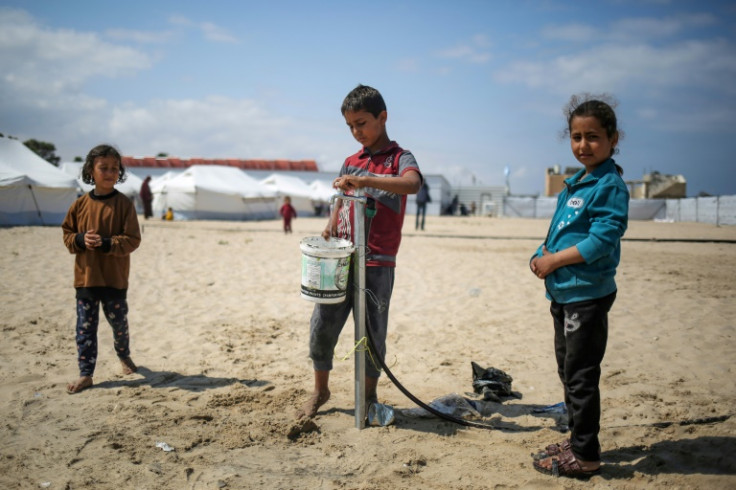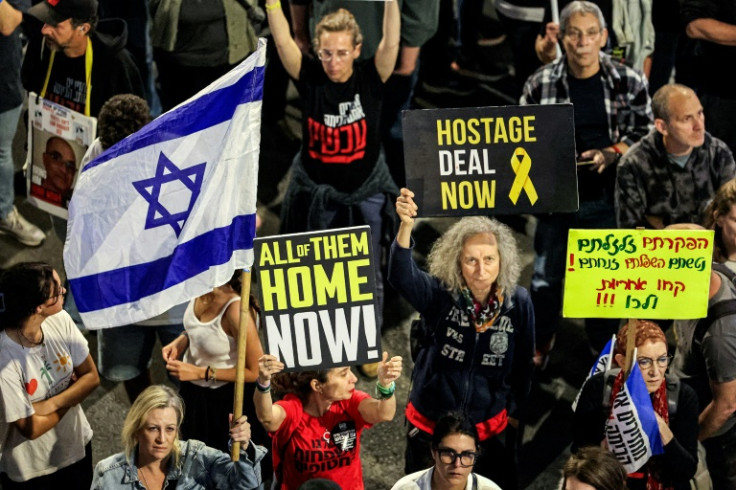Israel Presses On In Gaza As World Awaits Response To Iran Attack

Israel struck war-battered Gaza overnight, Hamas and witnesses said Monday, as world leaders urged de-escalation awaiting Israel's reaction to Iran's unprecedented attack that heightened fears of wider conflict.
World powers have urged restraint after Iran launched more than 300 drones and missiles at Israel late Saturday, though the Israeli military has said nearly all were intercepted.
Tehran's first direct assault on Israel, in retaliation for a deadly April 1 strike on its Damascus consulate, followed months of violence across the region involving Iranian proxies and allies who say they act in support of Palestinians in the Gaza Strip.
Israeli Prime Minister Benjamin Netanyahu met with his war cabinet on Sunday, but no decision has been made on how or when Israel could respond to the Iran attack, local media said, reporting another meeting planned later on Monday.
Tensions in Iran "weaken the regime and rather serve Israel", the newspaper Israel Hayom said, adding that this suggested Israeli leaders would not rush to retaliate.
Iranian President Ebrahim Raisi has warned that a "reckless" Israeli move would spark a "much stronger response", while foreign ministry spokesman Nasser Kanani said Monday that Western nations should "appreciate Iran's restraint" in recent months.
Tehran has insisted the attack on Israel was an act of "self-defence" after the Damascus strike that killed seven Revolutionary Guards including two generals.
The Israeli military said it would not be distracted from its war against Tehran-backed Hamas in Gaza, triggered by the Palestinian armed group's October 7 attack.
"Even while under attack from Iran, we have not lost sight... of our critical mission in Gaza to rescue our hostages from the hands of Iran's proxy Hamas," military spokesman Rear Admiral Daniel Hagari said late Sunday.
As mediators eye a deal to halt the fighting, fears persisted over Israeli plans to send ground troops into Rafah, a far-southern city where the majority of Gaza's 2.4 million people have taken refuge.
"Hamas is still holding our hostages in Gaza," Hagari said of the roughly 130 people, including 34 presumed dead, who Israel says remain in the hands of Palestinian militants since the Hamas attack.
"We also have hostages in Rafah, and we will do everything we can to bring them back home," the military spokesman told a briefing.
The army said it was calling up "two reserve brigades for operational activities", about a week after withdrawing most ground troops from Gaza.
The Hamas government media office said Israeli aircraft and tanks launched "dozens" of strikes overnight on central Gaza, reporting several casualties.
Witnesses told AFP that strikes hit the Nuseirat refugee camp, with clashes also reported in other areas of central and northern Gaza.
Hamas's attack that sparked the fighting resulted in the deaths of 1,170 people, mostly civilians, according to Israeli figures.
Israel's retaliatory offensive has killed at least 33,729 people in Gaza, mostly women and children, according to the Hamas-run territory's health ministry.
The UN Security Council held an emergency meeting Sunday following the Iranian attack, where Secretary-General Antonio Guterres warned the region was "on the brink" of war.
"Neither the region nor the world can afford more war," the UN chief said.
"Now is the time to defuse and de-escalate."
G7 leaders also condemned Iran's attack and called for "restraint" on all sides, European Council President Charles Michel wrote on X after a video conference on Sunday.
French President Emmanuel Macron said Monday his government would help do everything to avoid a "conflagration" in the Middle East.
German Chancellor Olaf Scholz said that after Israel's "success" in intercepting the Iranian launches, "our advice is to contribute to de-escalation".
Israel's top ally the United States has also urged caution and calm.
"We don't want to see this escalate," White House National Security Council spokesman John Kirby told NBC.
After the attack, US President Joe Biden reaffirmed the Washington's "ironclad" support for Israel.
However a senior US official said Biden had also told Netanyahu that his administration would not offer military support for any retaliation on Iran.
Word of the impending attack prompted Israel to close schools and announce restrictions on public gatherings, with the army saying early Monday that those measures were being lifted for most of the country.
In Iran, airports in the capital and elsewhere reopened on Monday, state media said.
Fears of a wider regional conflict propelled stock markets lower on Monday.
More than six months of war have led to dire humanitarian conditions in the besieged Gaza Strip.
Rumours of a reopened Israeli checkpoint on the coastal road from the territory's south to Gaza City sent thousands of Palestinians heading north on Sunday, despite Israel denying it was open.
Attempting the journey back to northern Gaza, displaced resident Basma Salman said, "even if it (my house) was destroyed, I want to go there. I couldn't stay in the south."
"It's overcrowded. We couldn't even take a fresh breath of air there. It was completely terrible."
In Khan Yunis, southern Gaza's main city, civil defence teams said they had retrieved at least 18 bodies from under the rubble of destroyed buildings.
Responding late Saturday to the latest truce plan presented by US, Qatari and Egyptian mediators, Hamas said it insists on "a permanent ceasefire" and the withdrawal of Israeli forces from Gaza.
Israel's Mossad spy agency called this a "rejection" of the proposal, accusing Hamas of "continuing to exploit the tension with Iran".
But the United States said mediation efforts continue.
"There's a new deal on the table... It is a good deal" that would see some hostages released, fighting halted and more humanitarian relief into Gaza, he said.





© Copyright AFP 2025. All rights reserved.





















